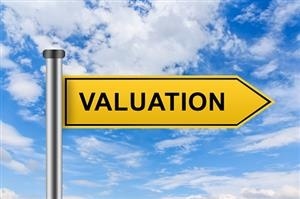
When you own a c-store, have you considered what it's actually worth? If you have an accurate idea of what your business is worth, you can then leverage that value to help build your benefit, whether it's to expand your operation, make needed improvements or add a new location for your company. But exactly how do you determine that value? Read on to learn how convenience store appraisal is completed and how it's different from the appraisal of businesses in other industries.
How is the Convenience Store Appraisal Process Different from Other Industries?
Convenience stores have a number of differences when compared to businesses in other industries. They tend to have a lot of money tied up in stock, require frequent restocking of that stock and deal in numerous small transactions. Location is vital to a convenience store's success or failure, with a good location that has few competitors providing a great income and a poor location with many competitors can end up costing money after the expenses are taken into account.
Because of these reasons, income is often used as an indicator of value in convenience stores. Whether you're considering selling your business or simply getting a loan to improve operations or machinery, knowing the value of your machinery gives you the power to leverage that value into a wide range of options. If you don't know the value of your equipment, you miss out on that advantage.
During the appraisal process, the business valuation specialist will start by learning about your business, including its position in the local market, the past income levels and its overall operation process. This allows the valuation specialist to determine the business' strengths and weaknesses, including areas where the owner can capitalize on the strengths and improve on the weaknesses. They're able to project the estimated income out into the future to determine future value, whether the business has strong regular income, seasonal income from tourism or special events or irregular income that has no regular pattern.
This information is all fed into a number of complex calculations that allow the business appraiser to determine the convenience store's overall value. Those calculations are then used in developing a professional report that explains exactly how that value was calculated, the factors that were involved and the reasons behind the valuation, which can often impact the type of calculation that was used. This is important, as some situations require the appraiser to use a specific methodology, such as using fair market value for some types of court cases. But what about once the report has been completed? If there are areas the owner doesn't agree with, there's time for discussion to ensure that no information has been left out of the report.
By understanding how convenience store appraisal works and how it's different from appraisal performed in other industries, you can gain a better appreciation for the process and the value the appraisal delivers for your business. However, these benefits can only be realized when you work with a certified business valuation specialist who understands the nuances in business appraisal. Make sure that you ask the appraiser you're planning on working with whether they've gone through the certification process, which provides strong education and methodologies that have withstood the test of time.